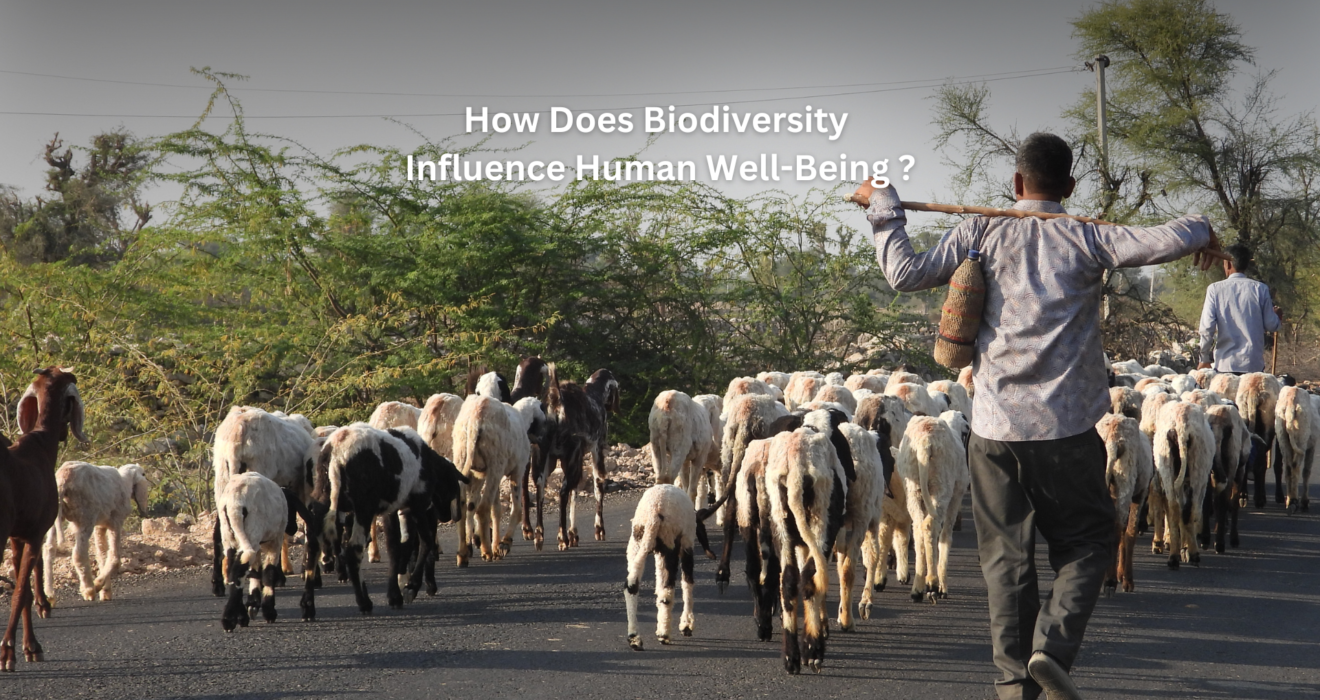
In the intricate dance of life on Earth, humanity plays a role that is often misunderstood—one that resonates with the very fabric of nature itself. Rather than viewing the natural world as a mere backdrop to human existence, it is paramount to recognize that we are woven into the same tapestry that includes diverse ecosystems and rich biodiversity. This profound connection has flourished over millennia, and understanding its significance can enlighten our approach to the environment and to one another..
Let’s explore how the diverse ecosystems we rely on provide essential services and why their preservation is critical for our future.
Provisioning Services: Nature’s Direct Gifts to Humanity
At the heart of this connection lies the concept of provisioning services—essential resources that nature provides directly to humanity. Approximately 2.5 billion people around the globe rely on agriculture, forestry, and fisheries for their livelihoods. Diverse ecosystems such as forests, grasslands, and oceans not only supply critical resources like food and fresh water but also offer raw materials and medicines vital for survival. The health of these ecosystems is intrinsically tied to human well-being.

Biodiversity plays an equally crucial role, particularly in food production. A staggering 75% of the world’s food crops depend on animal pollinators, such as bees. Without these tiny but mighty creatures, global food security would face severe challenges. Freshwater ecosystems, despite covering less than 1% of the Earth’s surface, provide drinking water for approximately 2.2 billion people and play a pivotal role in supporting agricultural irrigation. Additionally, they contribute to 16% of the world’s electricity needs through hydroelectric power generation.
The degradation of ecosystems threatens these vital provisioning services and could lead to catastrophic outcomes. For instance, rampant deforestation, especially in biodiversity hotspots like the Amazon rainforest, jeopardizes the existence of numerous medicinal plants. Over 80% of indigenous communities rely on these forests for their health care, underscoring the direct influence of ecosystem health on overall human welfare. Learn how global taking efforts to protect Biodiversity.
Regulating Services: Nature’s Invisible Hand
Transitioning from provisioning services, ecosystems also deliver essential regulating services that stabilize our environment. Forests, oceans, and wetlands actively regulate global climate systems by sequestering and storing carbon dioxide. Each year, forests alone absorb approximately 2.6 billion tons of CO2, acting as vital buffers against climate change.
Furthermore, wetlands and mangrove forests serve as critical protectors of coastal communities, guarding against natural disasters. Covering 6% of the Earth’s land surface, wetlands absorb excess water during floods, while mangroves can diminish storm surge wave energy by as much as 66%. Such natural defenses protect millions from the destructive forces of hurricanes and tsunamis.

The vital role ecosystems play extends to the purification of air and water. Forests trap airborne pollutants, enhancing air quality, while wetlands and forested watersheds filter harmful substances from water sources. These natural systems are responsible for over 75% of the world’s accessible freshwater supply, ensuring communities have reliable access to clean water. The loss of these services would result in increased pollution, more frequent natural disasters, and heightened vulnerability to climate change.
Cultural and Spiritual Services: The Soul of Nature
In addition to their ecological benefits, nature enriches human life through cultural and spiritual services. Natural landscapes provide spaces for recreation, tourism, and relaxation—factors that significantly contribute to mental and physical health. Research indicates that spending time in nature can reduce stress, enhance mental clarity, and lower the risk of mental health disorders by as much as 20%.
For many communities, nature also holds deep cultural and spiritual significance. Sacred sites—be they forest groves, mountains, or rivers—are revered across diverse cultures, with many traditions rooted in the sanctity of the natural world. In India, for instance, sacred groves represent small protected forests based on spiritual beliefs, serving simultaneously as biodiversity hotspots. In addition, nature-based tourism contributes over $600 billion annually, highlighting both economic and cultural importance.

However, the loss of cultural and spiritual services threatens not only our cultural heritage but also access to spaces essential for well-being. As these natural environments dwindle, the long-standing connection between humanity and the natural world weakens, leaving societies bereft of their natural heritage.
The Rising Threat: Ecosystem Degradation and Biodiversity Loss
Despite the invaluable services ecosystems provide, human activities are leading to their degradation at an alarming pace. Deforestation, pollution, overexploitation, and climate change are all contributing to the collapse of these vital systems. It is estimated that the global economy incurs losses exceeding $300 billion annually due to ecosystem degradation—vulnerable communities are often the hardest hit.
As ecosystems are damaged, the acceleration of biodiversity loss further diminishes their capacity to support human life.
Today, approximately 1 million animal and plant species face the threat of extinction, many within the coming decades. This significant loss threatens food security, clean water access, natural catastrophe protection, and ultimately poses dire implications for human health and economic stability.
Moving forward, embracing our interdependence with nature is essential for nurturing the fragile balance that sustains life on Earth. Recognizing and preserving the intricate relationships among nature, biodiversity, and humanity will ensure a future where both can thrive—one where the abundance of natural resources benefits all.


Written by
Anjeeta Goud
Team- Business development and Strategy
Terracon Ecotech
Reference :
Approximately 2.5 billion people rely on these sectors for their livelihoods
About 75% of the world’s food crops depend on animal pollinators
Accounting for about 70% of global freshwater withdrawals.
Wetlands and mangroves as natural disaster protectors
The economic impact of ecosystem services degradation
Access to nature can reduce stress and enhance mental clarity
Natural environments has been linked to lower mortality and improved well-being




